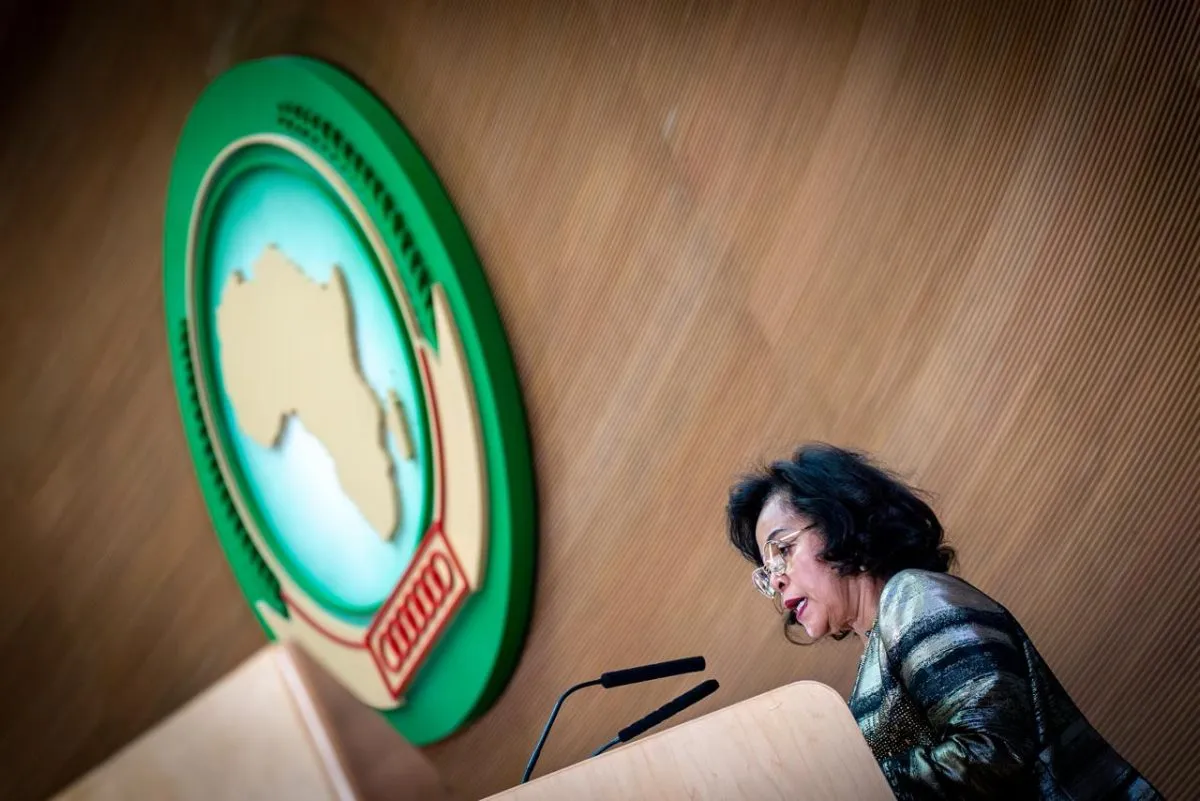This article was produced with the support of AUDA NEPAD
Your Excellencies, Distinguished Delegates, Ladies and Gentlemen,
It is a privilege to welcome you all to the 8th PIDA Week here in Addis Ababa, a city that embodies Africa’s unity and ambition. I extend my heartfelt gratitude to His Excellency, Prime Minister Abiy Ahmed Ali, for graciously hosting this event. Your unwavering leadership and personal involvement in this opening ceremony reflect your dedication to advancing Africa’s development and fostering regional integration. We deeply appreciate your steadfast support.
Since its inception in 2015, PIDA Week has become a premier platform for infrastructure development on the continent. Organised jointly by the African Union, AUDA-NEPAD, the African Development Bank, and UNECA, it serves as a vital space to evaluate progress, tackle challenges, and forge strategic partnerships. This year’s theme, “Fostering Resilient and Inclusive Infrastructure for Africa’s Sustainable Growth: Leveraging Transformative Financing and Regional Integration,” reflects our commitment to addressing Africa’s pressing infrastructure needs. Building upon the momentum of the 2022 Dakar Financing Summit and the 2023 launch of the PIDA First 10-Year Implementation Report in Nairobi, we convene here in Addis Ababa to deliberate on solutions that will reshape the infrastructure landscape and advance our collective vision for the continent.
The progress of PIDA over the past decade is a testament to what Africa can achieve through determination and collaboration. The current Priority Action Plan 2 (PAP 2) encompasses 69 transformative projects across transport, energy, water, and ICT. These include monumental initiatives like the Grand Inga Hydropower Project, which, when completed, will be the world’s largest electricity generation project, and the vision of a navigable Nile River connecting Lake Victoria to the Mediterranean Sea. These ambitious efforts remind us of Africa’s legacy of innovation, a legacy that stretches back to the construction of the pyramids. Today, this same spirit of ingenuity drives our infrastructure agenda forward, step by step, toward realising the ambitious vision we have set for Africa.
The PIDA Ten-Year Implementation Report highlights significant achievements. Over 30 million people have gained access to electricity, transforming lives and fuelling economic activity. Enhanced road and rail infrastructure has modestly increased intra-African trade, now accounting for 16% of total trade. In the water sector, critical storage infrastructure supports agriculture and trade, while broadband penetration has surpassed expectations, reaching over 25% and accelerating Africa’s digital transformation. During project construction and operation, PIDA initiatives have created over 160,000 direct and indirect jobs, underscoring their impact on employment and livelihoods. These successes reflect the tangible benefits of PIDA’s efforts but also underscore the ongoing challenges we must address.
Infrastructure development in Africa continues to face substantial financing gaps, with only $82 billion mobilised out of the $360 billion required by 2040. Many projects struggle to reach bankability due to insufficient early preparation and persistent misconceptions about risk. Addressing these challenges requires a focus on three foundational pillars: policies, partnerships, and financing. Effective regional coordination is essential, as evidenced by the success of treaty-based organisations and corridor initiatives that align national strategies with regional goals. Strengthening public-private partnerships is equally important to ensure that projects are sustainable, inclusive, and locally owned. Innovative financing mechanisms, such as blended finance and risk guarantees, are critical to mobilising the resources needed to close the funding gap.
The transformative potential of Africa’s corridors is evident. These routes are not merely transport links; they are the arteries of economic integration and industrial growth. Projects like the Lobito Corridor, connecting Angola, the Democratic Republic of Congo, and Zambia, and the Trans-African Highway Network, spanning over 56,000 kilometers, illustrate the importance of connectivity in driving regional trade. The operationalisation of 32 One-Stop Border Posts has significantly enhanced cross-border trade, reducing delays and fostering regional cooperation. These corridors demonstrate how well-designed infrastructure can unlock economic opportunities, improve lives, and advance Africa’s broader development goals.
Energy access remains a cornerstone of sustainable development. Despite progress, over half of Africa’s population still lacks reliable electricity. The Continental Power Systems Masterplan (CMP) offers a bold solution, aiming to provide electricity to 80% of Africa’s population by 2040 while enabling intra-African electricity trade worth $136 billion annually. This initiative integrates renewable energy markets and interconnected power grids, positioning Africa as a leader in clean energy. Countries like Morocco and South Africa have demonstrated what is possible through strategic policies and public-private partnerships, achieving remarkable progress in renewable energy generation. However, barriers such as weak procurement frameworks and grid integration challenges must be addressed to fully realize Africa’s energy potential.
The success of PIDA hinges on tackling the pressing challenges that shape Africa’s infrastructure journey. One of the most significant obstacles is risk mitigation. For far too long, perceived risks have kept private sector investments at bay, leaving critical financing gaps unaddressed. The use of innovative financial tools like partial risk guarantees and blended finance offers a new way forward. These mechanisms create an environment where private capital can engage with confidence, paving the way for transformative projects that redefine economies and connect regions.
Equally important is the need for integrated planning. Infrastructure development cannot succeed when sectors operate in isolation. Energy, transport, water, and digitalisation must function as parts of a larger whole, creating synergies that drive sustainability and long-term impact. Coordinating efforts across these interconnected sectors ensures that every road, bridge, or power plant becomes a vital link in a broader network that uplifts communities and fuels economic growth.
Local ownership brings another layer of importance to this agenda. Infrastructure must belong to the communities it serves. It cannot simply be imported solutions dropped into unfamiliar landscapes. Public-private partnerships that include local businesses and empower communities unlock possibilities for genuine engagement and ongoing maintenance. Strengthening local capacities makes these projects not only viable but cherished as engines of growth and transformation.
The ultimate purpose of PIDA is not confined to constructing physical structures. Its true essence lies in its potential to transform lives. Roads and power grids are not the end goal but a means to enable opportunities, foster industries, and inspire hope across the continent. As PIDA moves into its next phase, its focus must remain on empowering Africa’s people, creating dynamic markets, and fuelling industrialisation.
Placing people at the centre of this vision changes everything. Infrastructure is no longer about steel and concrete; it becomes a catalyst for unlocking brighter futures and stronger economies. When the needs and aspirations of Africa’s people become the foundation of every project, PIDA achieves far more than delivering infrastructure—it becomes a force for prosperity, opportunity, and progress.
Let us seize the opportunity presented by this 8th PIDA Week to reaffirm our collective commitment, deliberate on actionable solutions, and chart a path toward sustainable growth and regional integration. Your participation is a vital step toward achieving this vision.
Thank you.

 Sign in with Google
Sign in with Google 



